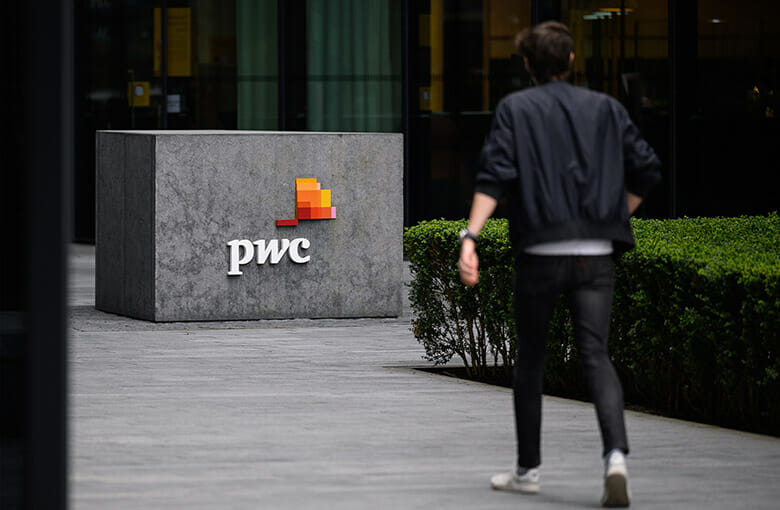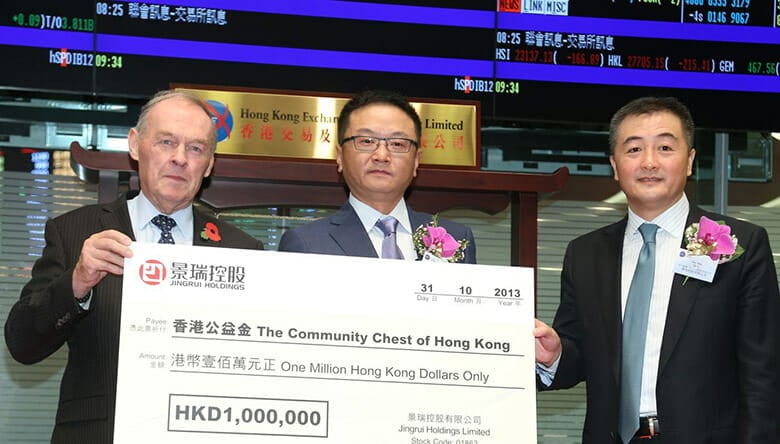
PwC is walking away from another mainland developer client (Source: Getty Images)
Jingrui Holdings has joined the growing list of Chinese developers cutting ties with their auditors, with the company announcing that Big Four accounting firm PwC exited the role late last month.
At the request of Jingrui’s board, PricewaterhouseCoopers resigned as auditor with effect from 31 May, the Shanghai-based company said late Friday in a filing with the Hong Kong stock exchange. The two sides had been unable to agree on a timetable to complete the audit of Jingrui’s 2021 financial results.
“The board is in the process of appointing a new auditor to fill the casual vacancy following the resignation of PwC and hold office until the conclusion of the next annual general meeting of the company,” co-chairmen Yan Hao and Chen Xin Ge said in the filing. “The company will make an announcement when such appointment is made.”
PwC stated in its resignation letter that further clarification was required with respect to certain bank deposits held by Jingrui in the amount of RMB 4.9 billion ($730 million). Jingrui said it would make further announcements about publication of the 2021 results in due course. Trading in the company’s HKEX-listed shares has been suspended since 1 June.
Process Goes Awry
In line with other Chinese property firms, Jingrui has argued that restrictions imposed as a result of the mainland’s COVID-19 outbreak have led to delays in the auditing process.
China Evergrande, the world’s most indebted developer, announced in March that it would miss a deadline at the end of that month for publishing its 2021 results, echoing similar statements at the time by rivals Sunac China Holdings and Shimao Group Holdings and mid-sized builder Ronshine China Holdings.

Not too long ago, Jingrui co-chairs Chen Xin Ge (centre) and Yan Hao (right) were giving away millions
Shenzhen-based Evergrande blamed several factors for the delay in posting its results, including COVID-19 effects and a large number of additional procedures introduced by its auditor after the company saw “drastic changes in the operational environment” beginning in the second half of 2021.
Sunac, China’s fifth-largest developer by contracted sales, pointed to the pandemic’s impact on audit procedures such as confirmations from banks, customers and suppliers that could not be completed as scheduled. Processes that require on-site inspections, such as interviews with partners and financial institutions, were also delayed, the Tianjin-based company said.
In late April, PwC resigned as auditor of Guangzhou R&F Properties and Shimao Services Holdings after earlier giving up the role at Powerline Real Estate, Ronshine China and Hopson Development. Bloomberg had reported in March that the London-based firm planned to gradually exit auditing Chinese private property developers after witnessing Evergrande’s problems.
Cracks in the Foundation
Jingrui had been considered a solid player, but the developer raised concerns in February when it sought an extension on payment of a $190 million bond maturing in March 2022. The company successfully exchanged the old notes for new ones maturing in 2023.
According to unaudited operating results released this month, Jingrui’s contracted sales for the first five months of 2022 totalled RMB 3.8 billion, plunging more than 75 percent from the year-earlier period.
The developer last December closed on a joint acquisition with US-based LaSalle Investment Management of a retail and hotel property in Shanghai’s Hongqiao area, with plans to convert the distressed asset into a multi-family residential project. The partners purchased the property for RMB 438 million ($68 million) in cash, along with assumption of existing debt, with Jingrui holding a 25 percent interest in the asset.
Jingrui’s other hookups with US investors include five developments in partnership with Dallas-based Century Bridge Capital, a private equity firm focused on residential projects in China’s second- and third-tier cities.
Century Bridge has committed nearly $79 million via various funds to Jingrui projects in Wuxi, Taicang and Ningbo. The US firm exited the first of two Wuxi projects in 2016 with the sale of a 43.24 percent stake for $41.8 million after investing $32.5 million in 2014.
Leave a Reply